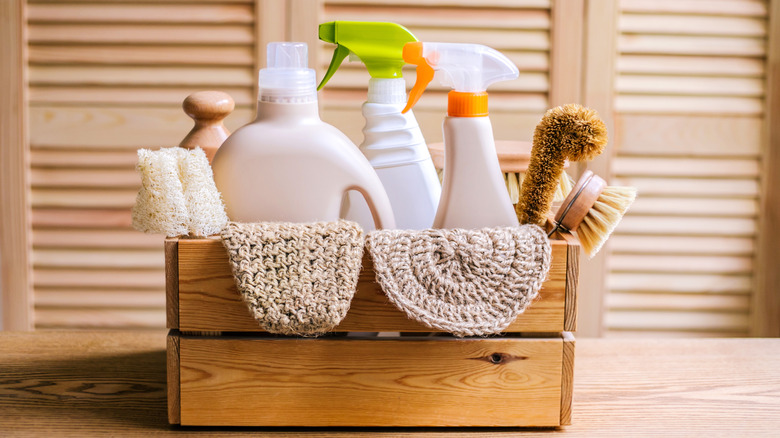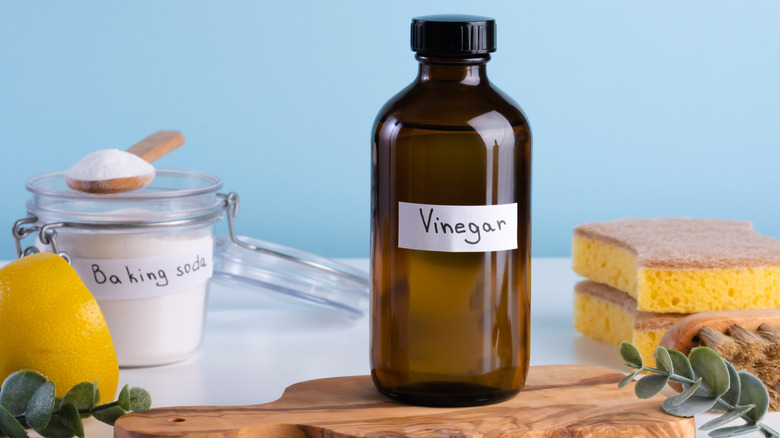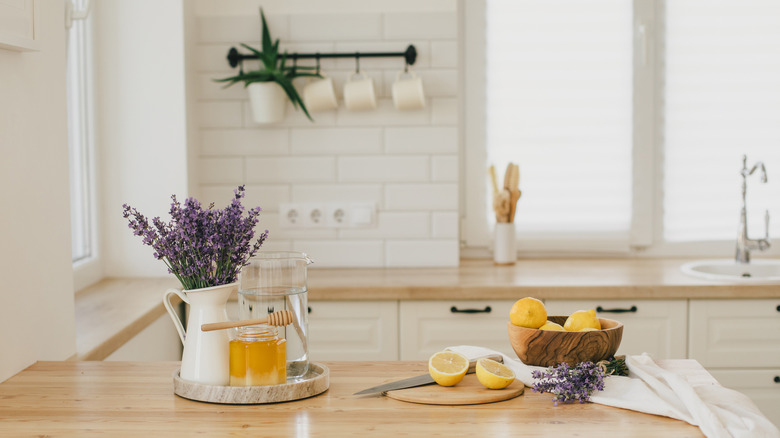Yes, Fragrances Are Toxic: How To Clean Green (& Why It's Worth It For Your Home)
We may receive a commission on purchases made from links.
We all love walking into a clean-smelling home. The scent of cleaning products automatically signals a successful disinfection, and a clean house is a healthy house, right?
Not necessarily. The truth is that "clean" doesn't have a smell. Fragrances we associate with a clean house are really just extra chemicals added to cleaning products. These added chemicals can be harmful, especially to young children, those with respiratory issues or pre-existing conditions, and professional cleaners who may endure prolonged exposure. The effects of VOC (volatile organic compounds) exposure can include nausea, headaches, liver and kidney damage, irritation of the eyes, nose, and throat, and even cancer.
According to the American Lung Association, buying fragrance-free products will improve your home's air quality by reducing the number of VOCs lingering in the air. However, fragrance-free cleaning products still contain VOCs — just fewer of them. That's a factor in why DIY cleaners are all the rage, thanks to sites like TikTok and Pinterest. Even then, though, while DIY cleaners are certainly better for the environment and your bank account, many recipes still contain toxic chemicals. To truly lower the amount of chemicals your family breathes, steer clear of recipes that use essential oils or even dish soap, which contains dyes, fragrances, and other toxins. Adding natural fragrances like lemons will give you back that just-cleaned smell you love, without the myriad of chemicals faking a lemony scent.
The best non-toxic ingredients for homemade cleaning solutions
The best ingredients to use are vinegar, baking soda, and castile soap. Common brands of distilled white vinegar such as Heinz are 5% acidic, making it safe enough for most fabrics, but powerful enough to remove stains and mineral deposits. It can also disinfect, killing certain germs such as E. coli. Baking soda, meanwhile, is abrasive, and helps scrub away grime. It also deodorizes and removes stains. Castile soap is made with natural ingredients and proven to clean just as well as chemical-laden soap. Yoken's liquid castile soap from Yoken is fragrance-free and EWG-certified.
All in all, these three components are (mostly) what you need to naturally clean your home. Equal parts vinegar and water is an excellent kitchen cleaner, while two parts vinegar to one part water gives you a streak-free shine on windows and glass. Make a paste with baking soda and water on tough areas like the inside of the oven (let it sit for 20 minutes, then use a scouring pad to remove caked-on food). The reaction of vinegar mixed with baking soda will do wonders for cleaning drains and toilets. A simple spray of castile soap and water can be used on any surface, or placed in a squirt bottle to use on dishes. Mix all three together with water for extra scouring and disinfecting power in especially filthy areas like bathrooms.
This will get your home clean without the VOCs. What if you miss the scent of those toxic fragrances, though? We've got you covered.
Yes, your home can smell clean without dipping back into chemicals
So yes, what about that just-cleaned smell? Vinegar is great for cleaning, but the smell is off-putting. You can solve this problem by infusing vinegar with your favorite natural fragrances.
Fill a Mason jar with a desirable combo of ingredients such as lemon, lime, or orange peels, and fresh herbs like sage, basil, mint, and lavender. Heat vinegar to almost boiling, then pour into the jar. Let it sit for 24 hours in a cool, dark location. Strain, and then you are ready to use your homemade vinegar cleaning solution. For an added bit of olfactory fun, freeze the remaining peels and herbs and put down your kitchen sink drain, then run the disposal. You can also make your room smell good by adding lemon juice to any of your homemade cleaning solutions.
Meanwhile, it's worth noting that, sometimes, the best way to get those fresh smells is to ... well, have the actual fresh plants. Growing indoor plants and herbs will also create a fresh, pleasing smell, and as a bonus, houseplants can actually remove toxins from the air. Gardenia, jasmine, lavender, and mint are fragrances that cleaning products often try to emulate. The real thing smells a lot better.


